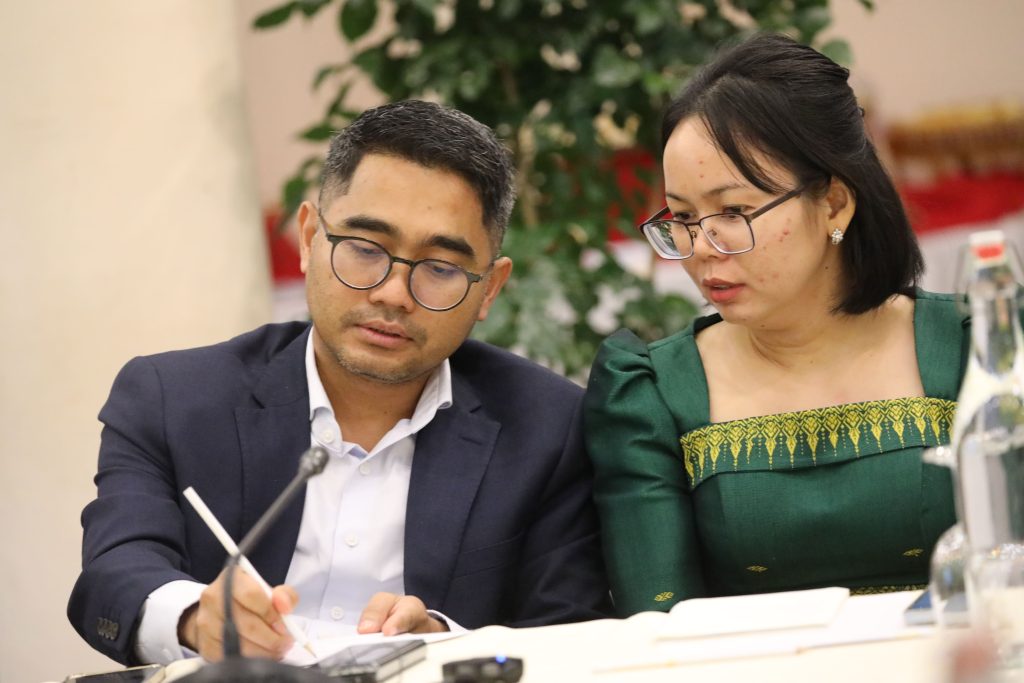
“Tackling complex problems such as access to quality cancer care requires systemic changes that can only be achieved through long-term commitment and trust. City Cancer Challenge (C/Can) is empowering city stakeholders to create, own and sustain changes in cancer care”. Silvina Frech, Head of Sustainability, City Cancer Challenge.
In this fourth story in our “Inside Story” series, we highlight some of our learnings and the principles of city sustainability planning to help ensure that cancer care solutions implemented in C/Can cities have a lasting impact.
How is C/Can supporting local leaders to ensure lasting changes?
In the C/Can model, cities are supported over a two-year period to convene key stakeholders, identify priority gaps, and develop local solutions with the support of a network of partners and experts. Sustainability is defined as a city that “owns” C/Can’s innovative multi-sectoral approach by integrating it into their local structures, and using the local capacities developed with C/Can support to continue building its health system resilience for cancer care in the long-term.
1. A focus on city sustainability planning
Impactful changes in cancer care take time. Some of the solutions developed with C/Can support may be short-term and achievable with limited resources, while others require long-term funding commitments, capacity development, and public policy changes. Because the political landscape and financial resources constantly change, strategic planning for sustainability is critical to ensure positive changes in cancer care are sustained over time.
“Providing financial investment up front in capacity building and technical assistance, and then failing to sustain the changes that have been introduced and further build on them, would be a tremendous waste of resources.”, Dr Vilma Irazola, Director of Department of Research in Chronic Diseases, Institute for Clinical Effectiveness and Health Policy (IECS), Argentina.
2. Supporting a health system strengthening approach
Fragmentation of health systems in low- and middle-income countries is a key barrier to equitable, quality cancer care. This is why the C/Can city process helps identify and support actions that establish sustained improvements in the core building blocks[1] of: infrastructure, services, access to essential medicines and technologies, health workforce, information systems, health financing, leadership and governance for the delivery of quality cancer care, as well as strengthening the quality and resilience of the system overall.
3. Fostering a sustainability mindset
Experience in the first C/Can cities has shown the importance of developing a sustainability mindset among city stakeholders from the outset of engagement. Taking a long-term view helps to maintain momentum and enthusiasm in the initiative, sharing the conviction and commitment among city champions that “we are in it together, for the long haul”. At every step in the C/Can process, city leaders are encouraged to embrace and maintain a strategic focus on key elements known to contribute to sustainable changes:
- City ownership and accountability
In the C/Can model, city sustainability planning and implementation are led by a local multi-sectoral leadership group, coordinated by a civil society organization or a consortium of public, private and civil society organisations.
By leading their own sustainability planning, embedding it throughout the process, cities develop ownership and accountability of the projects, processes and partnerships, and are well-positioned and committed to continue driving change beyond C/Can’s initial support.
In Cali, ProPacifico is working with C/Can as the local sustainability partner responsible for continuing the implementation of C/Can projects, convening multi-sectoral stakeholders and integrating the process within local government priorities.
“More than 4,500 patients annually will benefit from the C/Can-ProPacifico alliance, which offers a unique opportunity for Cali and the Valle del Cauca region to continue working collaboratively for the benefit of all people and their families affected by cancer,” María Isabel Ulloa, ProPacifico’s Executive Director.
- Political commitment and an enabling policy framework
C/Can encourages local leaders to create change based on a shared vision of quality cancer care, including by garnering political support and advocating for cancer to be placed high on the country’s political agenda. C/Can also promotes alignment of efforts with national or regional cancer control plans and existing legislation so that changes are anchored and supported by a strong public policy framework.
“C/Can has supported the strengthening of the Paraguayan National Cancer Control Program (NCCP) to address the priority gap areas identified by the city stakeholders. This new and inclusive model of working together has laid the foundation for how we continue to build on C/Can´s work, to make a real impact on our population health.” Dr. Alicia Pomata, Director of Paraguay NCCP, National Cancer Institute, Ministry of Health and Social Services.
- Learning and knowledge sharing through the C/Can City Network
Sharing experiences among cities facing similar challenges helps strengthen local capacity and disseminate innovative solutions. C/Can is working with all current cities to develop the local capacity needed for robust and systematic monitoring and evaluation to assess progress towards sustainability; and sharing of valuable knowledge and learnings on effective, localized sustainability models.
“As the number of C/Can cities and partners continues to grow, a focus on collective learning through a global network with a shared vision, will be key to inspiring long-term commitment and sustainability of efforts to improve cancer care in cities”. Rebecca Morton Doherty, Head, Policy and Global Impact, C/Can
What next?
This month C/Can is rolling out a practical guidance tool for its new cities, Leon and Greater Petaling. The guidance is a resource for local stakeholders to lead the development and implementation of their city sustainability plans, with examples of good practices from C/Can cities. Based on new learnings in these cities, the model will be further refined and a comprehensive sustainability toolkit will be developed in 2021 to support future cities.





